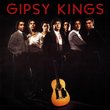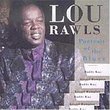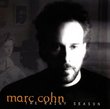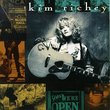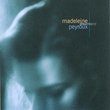| All Artists: Bill Bruford's Earthworks Title: Earthworks - All Heaven Broke Loose Members Wishing: 5 Total Copies: 0 Label: Editions Eg Records Original Release Date: 8/13/1991 Re-Release Date: 9/27/1991 Genres: Jazz, Special Interest, Pop, Rock Styles: Avant Garde & Free Jazz, Jazz Fusion, Modern Postbebop, Bebop, Progressive, Progressive Rock Number of Discs: 1 SwapaCD Credits: 1 UPCs: 017046210324, 017046210348 |
Search - Bill Bruford's Earthworks :: Earthworks - All Heaven Broke Loose
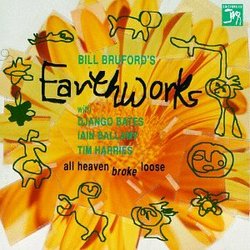 | Bill Bruford's Earthworks Earthworks - All Heaven Broke Loose Genres: Jazz, Special Interest, Pop, Rock
|
Larger Image |
CD DetailsSimilarly Requested CDs
|
CD ReviewsMore "Jazz" for the Progressive Philistine Snow Leopard | Urbana, IL | 11/28/2003 (4 out of 5 stars) "As I've already attempted for Earthwork's later "A Part and Yet Apart", this review is intended to help the fan of Bruford's progressive music to decide if it'd be interesting to them."Hotel Splendour" kicks the disc off on a bit of an up-tempo swing, keyboard vamp and chugging horns singing out melodies over the top. After a couple minutes of this, a slap-bass introduces something of a reorchestration of the opening, but in a much more effective, groovy vein--bass and wind flourishes fill out the accompaniment in playful and harmonically rich ways. This is followed by a return to the opening section to close things out on a somewhat banal note that leaves anything but an impression of hotel splendour."Forget-Me-Not", at over 8 minutes, is an extended and effective exploration piece. Opening on a very "jazzy" slow passage, it segues to chordal drums and a harmonically rich interplay for winds. The harmonies and harmonic richness here are reminiscent of producer David Torn's work (without all the guitar effects, of course). Halfway through the song, glassy electronic piano ushers in an even freer improvisational section that devolves into a low-key chaos of piano horn bass and drums. A brief reprise of the opening melody rounds the piece out nicely. Despite the subdued ambit of the song, it avoids lounge-jazz clichés and has enough of a progressive sensibility to be engaging. [This song reminds me of Discipline's "The Sheltering Sky" but acoustic and much slower.]"Candles Still Flicker in Romania's Dark" is even more down-tempo still, the disc so far gradually carrying us into more and more languid territory. At only 4 minutes, there's not a lot of this song, yet it moves through several short passages, each quite lovely (including a particularly fine dialogue for winds followed by a sparse piano and sax interplay). Toward the end, the bass reprises an earlier horn line, and lends the piece a beautiful cohesiveness to go along with its melodic beauty. A bit solemn and dreamy, this is one of the best pieces on the disc. [If Bruford had played on King Crimson's "Islands", this would have been the most brilliant passage in the title song.]"Pigalle" not only dispels the mood, but completely resets the album with Cajun accordion and "tribalish" drums making a backbone for an angular horn-accordion line that gradually becomes more and more and more frantic, to the point of (intentional) comedy. Bruford's drumming is prominent here (because of the straightforwardness of the accordion and soloing horns). The piece becomes especially lively and wry around the fourth minute when the accordion, bass and drums all go off on a literal tear, chugging up to locomotive pace (occasionally interrupted by a loungey cadence that is absurdly charming) then back to the chaos. Were it not for the sheer verve of this piece, the novelty of it would probably wear off quickly."Temple of the Winds" begins with a breathy wash of keyboards (sustained for the entire duration of the song) and a vaguely Irish horn line with bass accents that is abruptly broadsided by a sharp fill from Bruford to usher in drums and percussion much more up-tempo and driving than the music itself. Building for a while, there is then an unexpectedly harsh, but effective bridge-fill that segues to a wonderful mélange of bass, horns, drums and timpani accents--all flourishes with no melody that gradually tapers off again to just the keyboard wash. A very pleasant and interesting five minute trip."Nerve" once again completely resets the mood, with sharp bass-driven drums, racing angular horn line-flourishes, electronic noise washes and slightly mad-sounding Hammond-like organ blocks. At around two and a half minutes into the song it crashes and splinters into a fading pool of electronic afterblips, then picks up again, with the bass playing Bruford's opening rhythm as metallic noisiness and confusion swirl in the background. The most energetic and experimental of the pieces on the disc, it's reminiscent of a sparser version of "Repercussions of Angelic Behavior" (years before that disc though)."Splashing Out" begins horribly, as some kind of low-tech disco-cheese, but thankfully this lasts only a few seconds before sax and bass bury that basic impulse under their amelodic lines. The whole thing becomes a happy chaos (as if no one is in the same key) and finally breaking down in complete mayhem by minute 4. The cringe-worthy disco-cheese whiffs by again, and the band reprises the whole arc of the song in the last 90 seconds."All Heaven Broke Loose" closes the disc with chordal drums and a soulful sax lead that gradually builds, or decays, to another chaos of instruments, though in a less frantic register than the previous song. One can assume that this is the heaven breaking loose, but it's not quite as heavenly as one could hope. As this finally calms down, the song somewhat "drunkenly" leans into a very "Auld Lang Syne" melody that begs to become a pub sing-along. At seven and a half minutes, the opening chordal drums and sax return in an unexpected reprise to wrap the disc up.Typically regarded as the best of the original Earthworks' line-up, I find myself listening to it the least often. If it had stayed in the "Candles Still Flicker" or "Forget-Me-Not" territory throughout, it would seem less erratic, while the novelty of "Pigalle" and "Nerve" just wear thin too quickly. Tones and textures abound here and, like other Bruford "jazz" projects, his progressive background tends to insert itself, more or less subtly, to keep the proceedings from swerving too deeply into that kind of lounge-jazz that I can't stand. Even so, I can't rate this amongst his most compelling disks. Unlike other Earthworks disks, Bruford's drumming is the most consistently interesting element here." Maybe the Best of the Three Earthworks Albums Beebebop | 11/24/1998 (4 out of 5 stars) "A logical third (and final studio) installment of the original Earthworks. Much better sound than the first album. The tunes are longer with great improvisation on Forget-Me-Not and wonderful composed harmonies from Bates and Ballamy on the last track. Walter Quintus and David Torn did a great job mixing the electronic drums and the acoustic horns. Splashing Out takes house music and turns it sideways in a deliciously twisted jaunt."
|

 Track Listings (8) - Disc #1
Track Listings (8) - Disc #1




